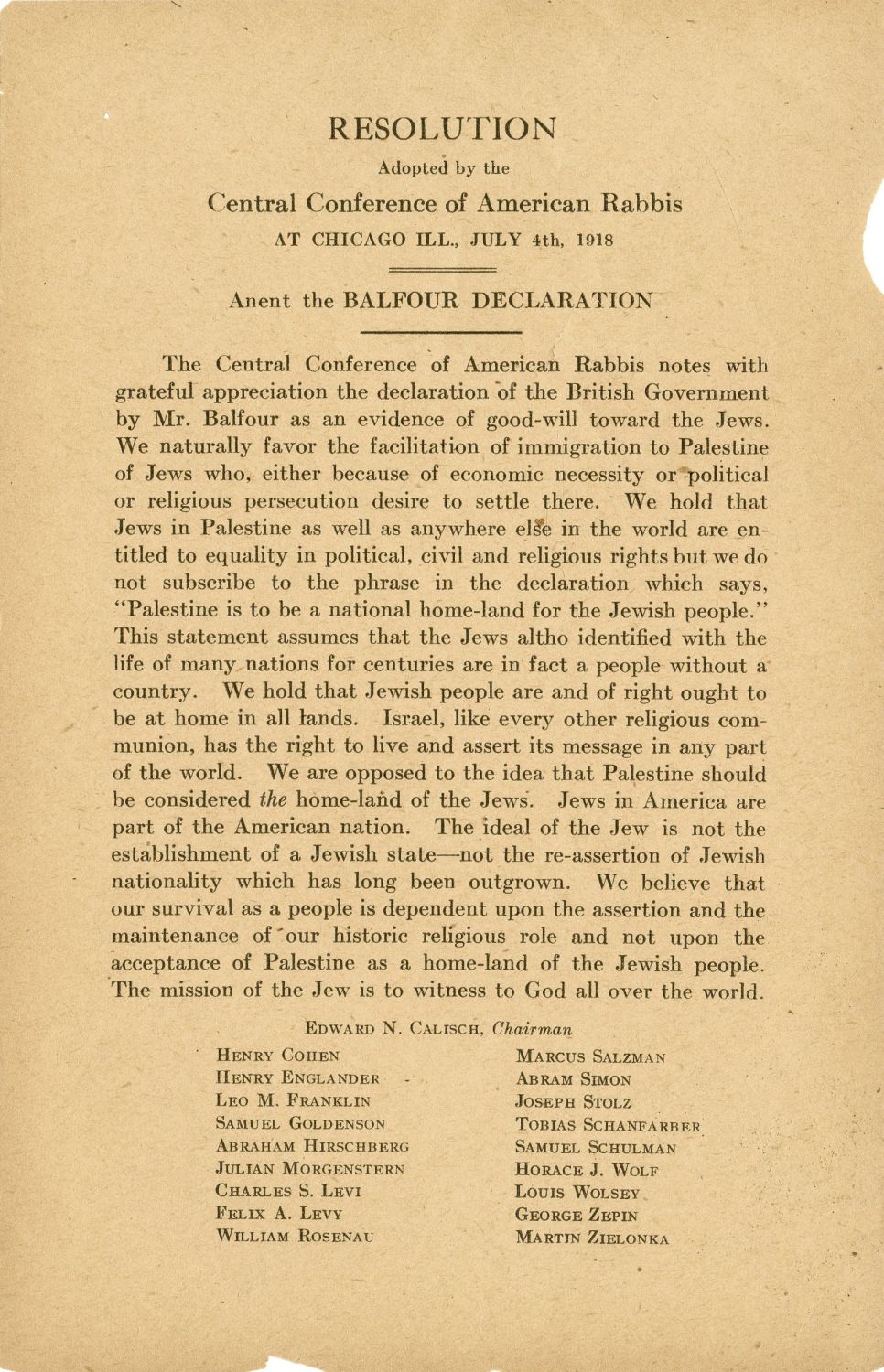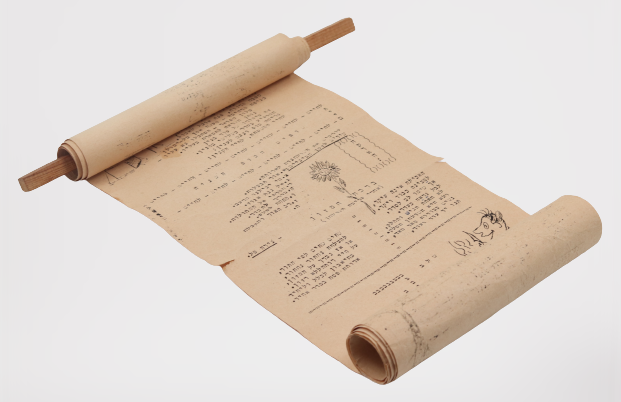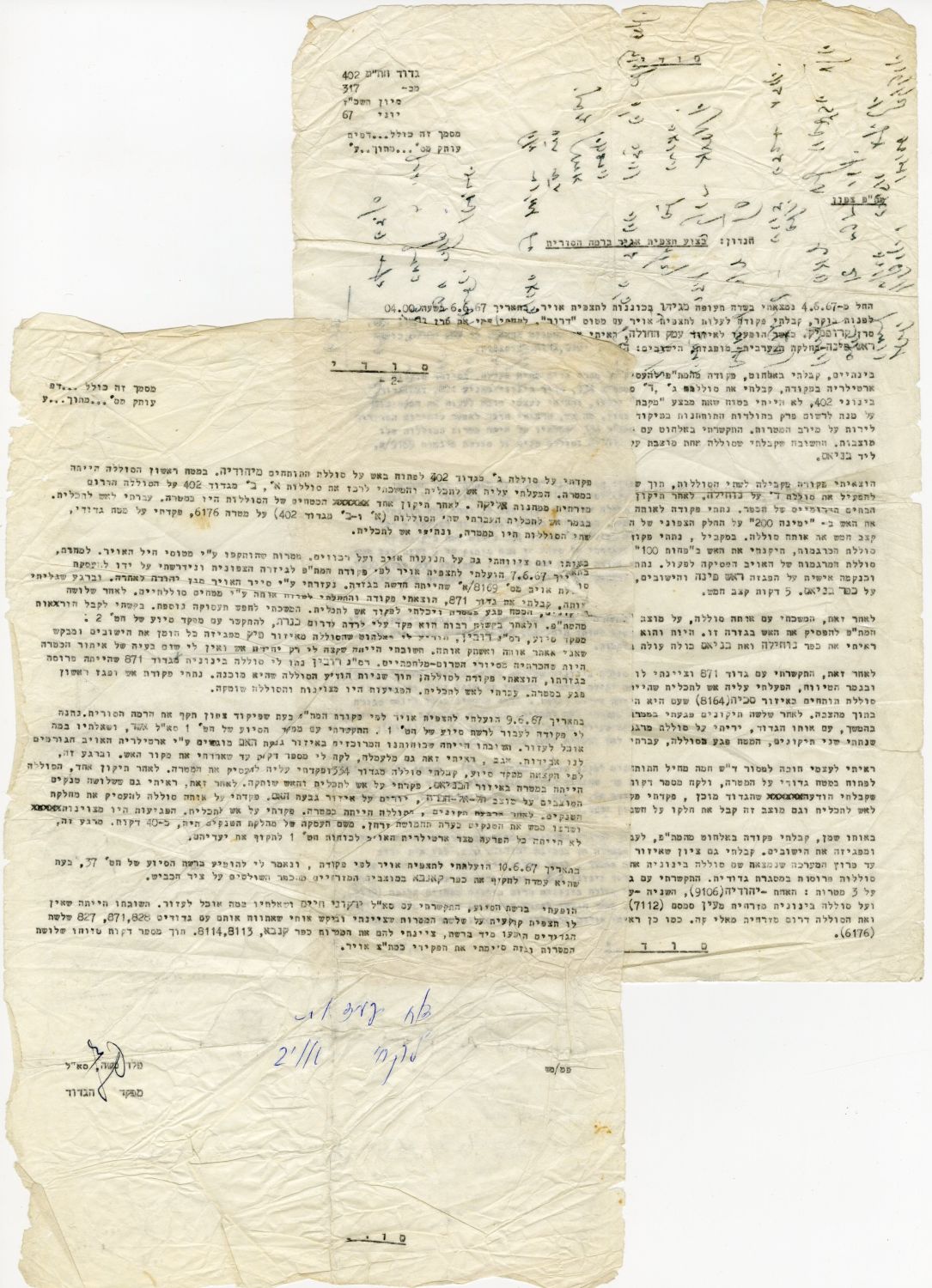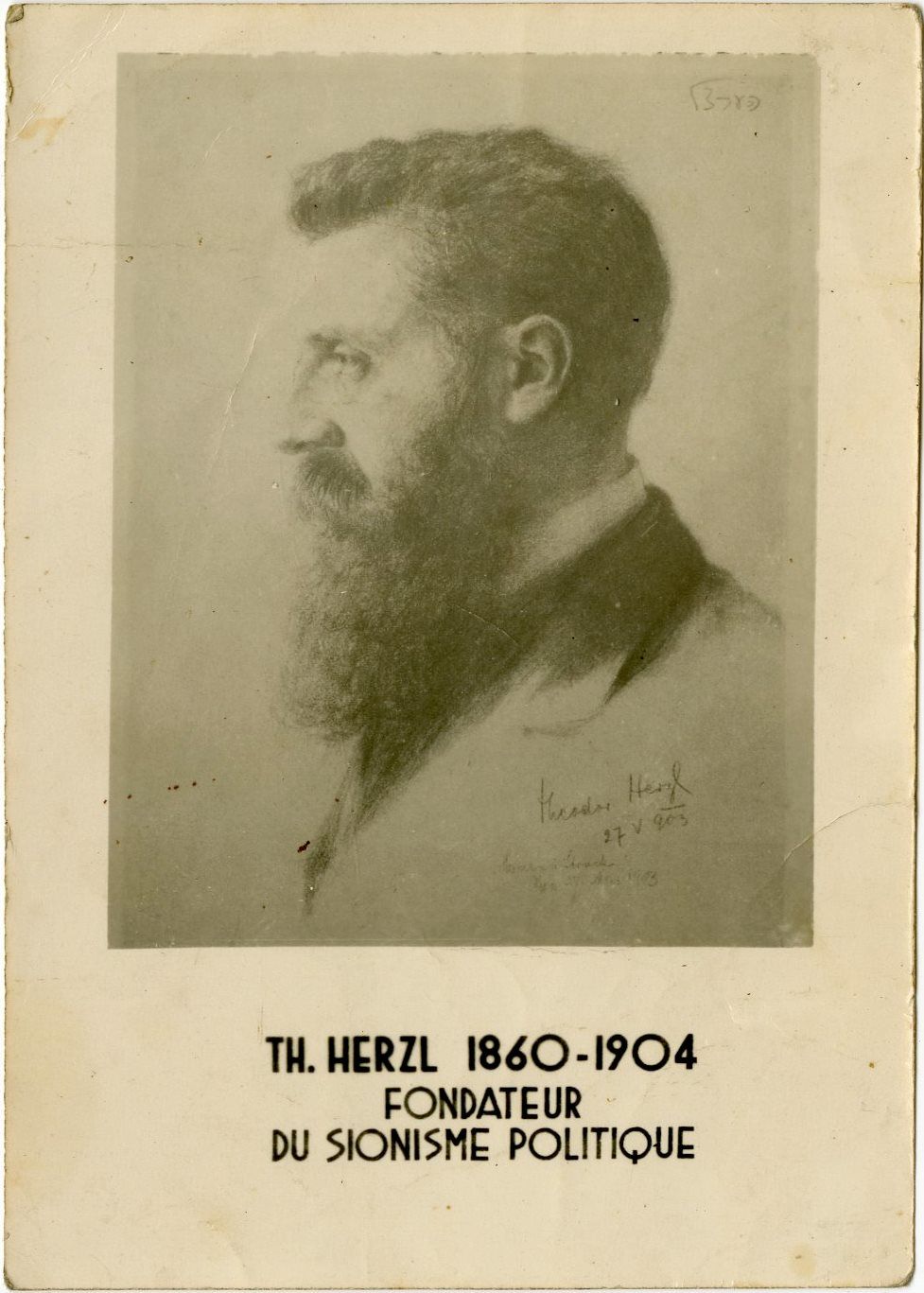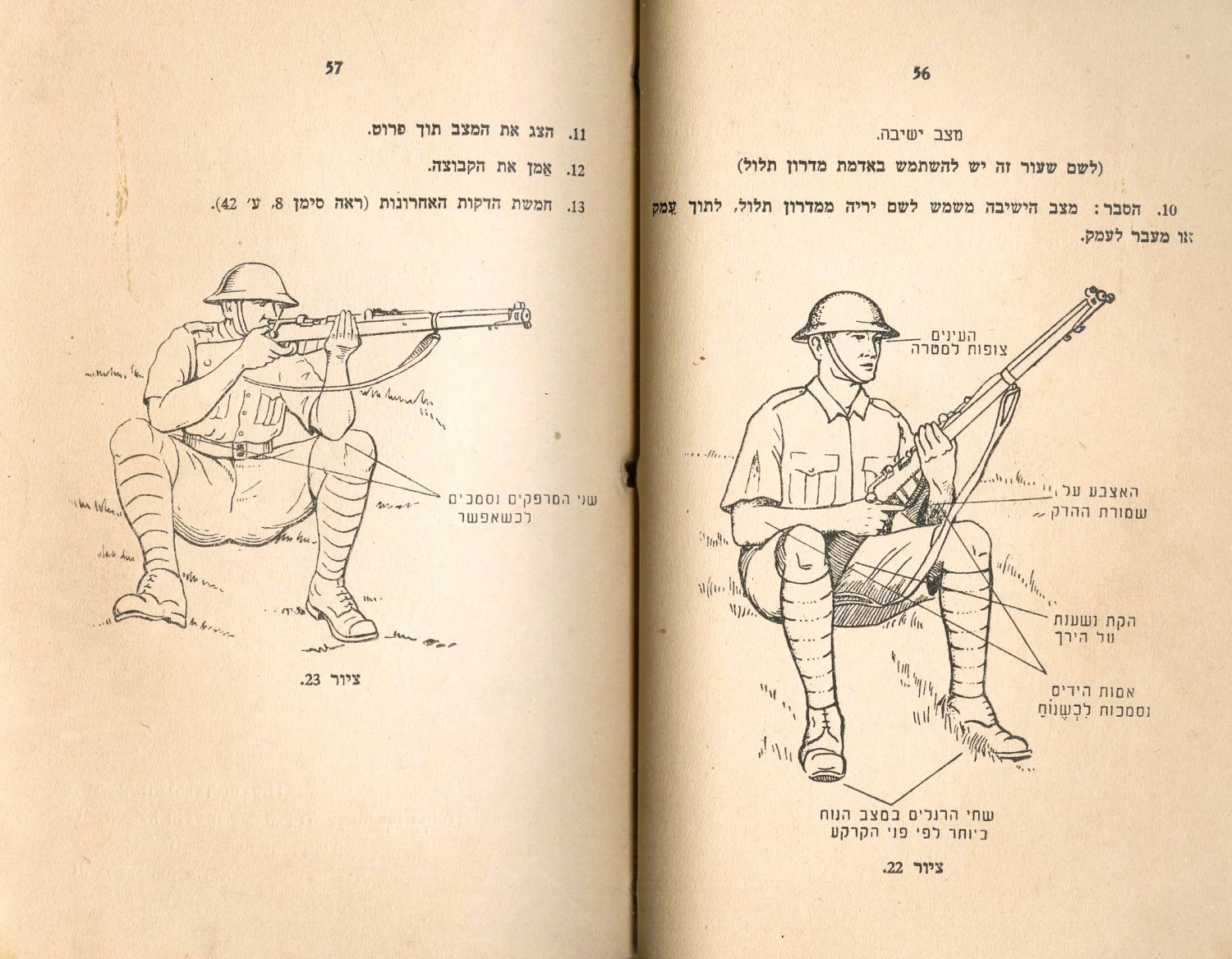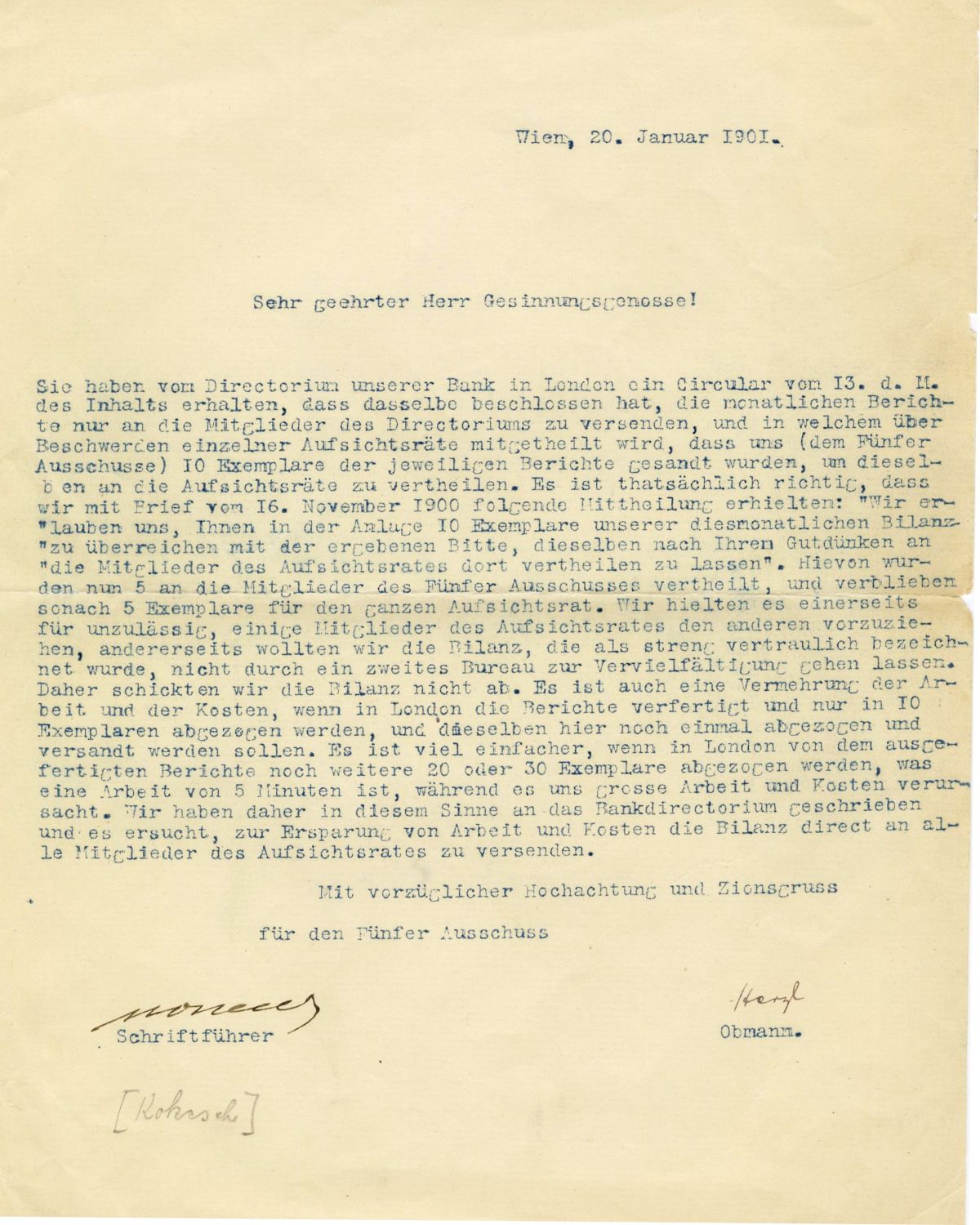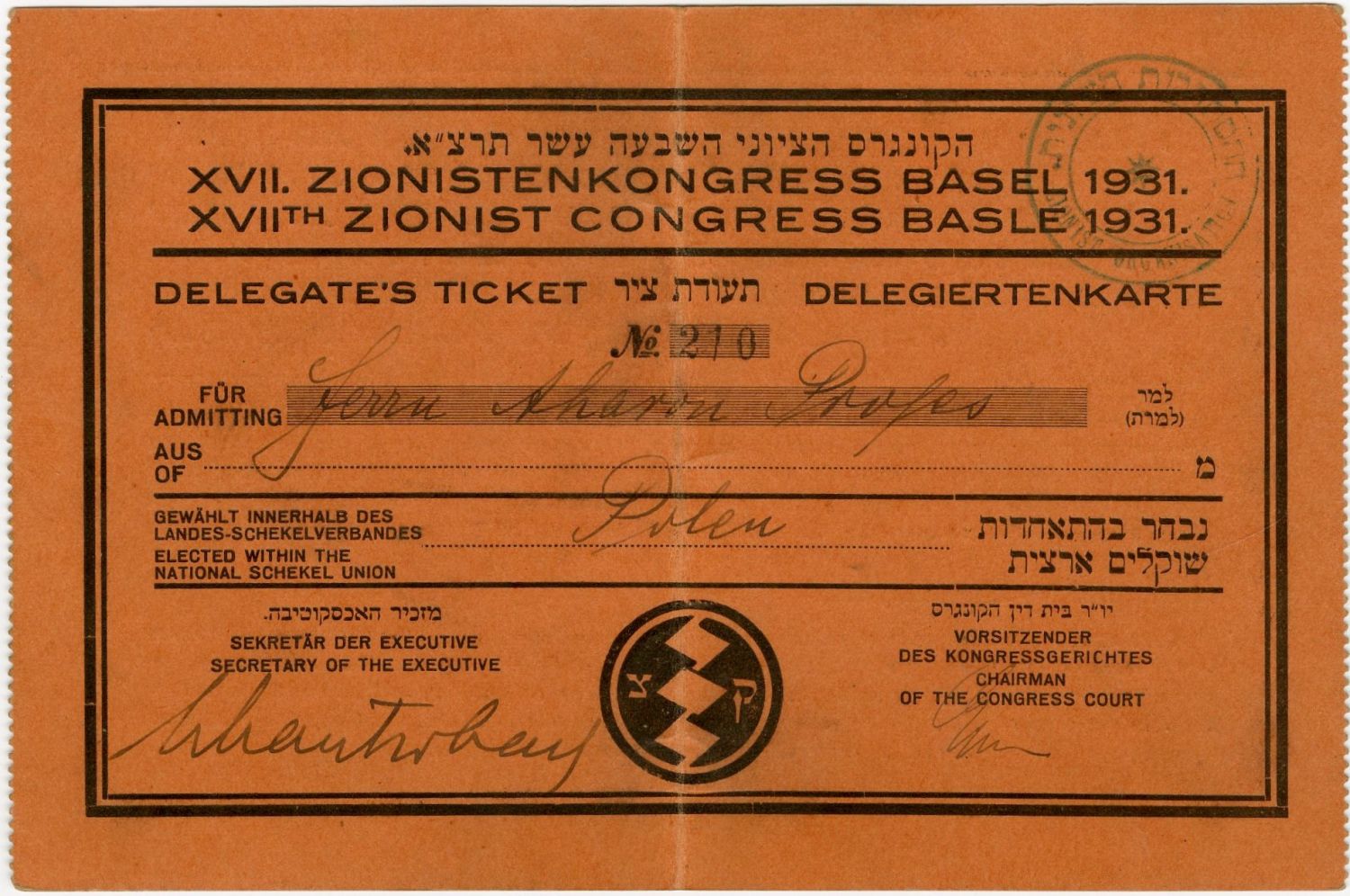RESOLUTION adopted by the Central Conference of American Rabbis at chicago ill, july 4th, 1918 - The official response of the Union of Reform Rabbis in the USA to the Balfour Declaration.
A printed leaf of the official response of the Union Reform Rabbis in the United States to the Balfour Declaration, who are fundamentally opposed to the spirit of the declaration. It was published about seven months after the signing of the Balfour Declaration. The rabbis are grateful for the good will arising from the declaration, but express reservations about the clause stating that the Land of Israel is The homeland of the Jewish people. Jews, like all other religions, have the right to live equally in any country in the world, and they should not be treated as having more ties to one land than to another. And they write explicitly: "We oppose the idea that Palestine should be considered the homeland of the Jews", adding that the Jews in America are part of the American nation, and that "the ideal of the Jew is not the establishment of a Jewish state", and that the destiny of the Jewish people is to "witness to G-d" in all parts of the world.
The statement is signed in print by Edward N. Calisch the chairman and 18 other rabbis, and also was sent to the British cabinet.
The Central Conference of American Rabbis (The CCAR) was founded in 1889, and is the largest and oldest organization of Reform rabbis in the USA. The position presented in the document before us characterized the position of the Reform movement in its "classic" period [1870-1918], which adopted the concept of universal mission, and in light of This was opposed to the Zionist movement. In the years between the two world wars, the position of the Reform movement towards Zionism changed. The change resulted from broad developments within the Reform movement and outside it, and was first and foremost related to inner review conducted by a new generation of Reform leaders in the movement and its goals.
In the United States, Zionism, as an ideology, has been more widely accepted, primarily due to the influence of Supreme Court Justice Louis Brandeis, a Reform Jew, who presented Zionism as a proud Jewish component within the framework of American Jewish patriotism. Moreover, the movement could not oppose the vision of a Jewish state, which over the years became increasingly closer to reality, to the point where it became an existing fact.
[1] leaf (printed on one side), 21.5 cm. Light tears in the margins. Condition Good.

